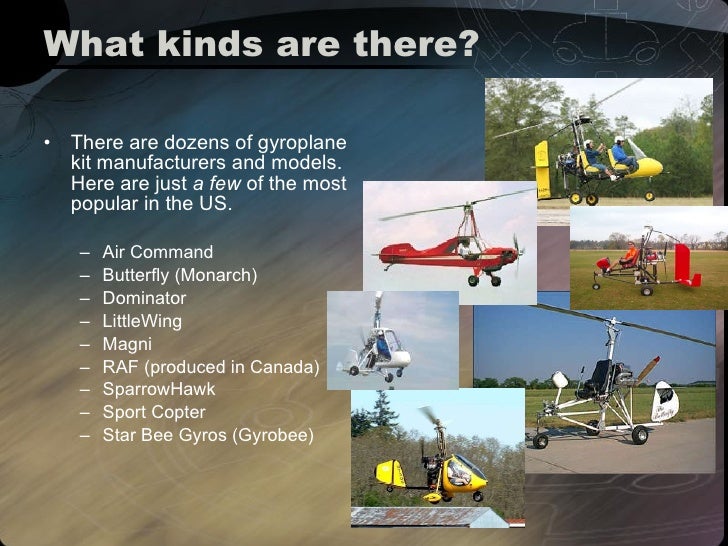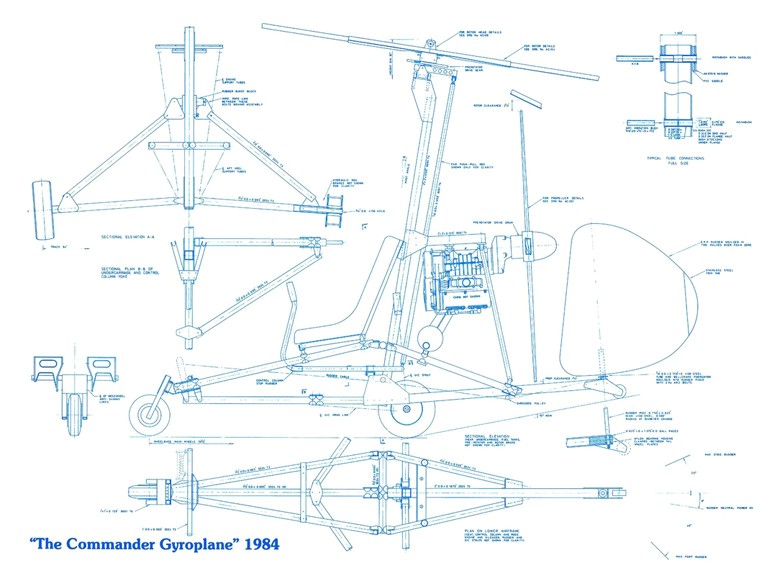- Bensen Aircraft Gyrocopter Plans Download Software
- Bensen Aircraft Gyrocopter Plans Download Pdf
- Bensen Aircraft Gyrocopter Plans Download Free
- Gyroplane up close. Because I lived so close to the airport, I spent a fair amount of time studying the old Bensen gyro. After several months of poking around this strange little craft, I became active in a local Popular Rotorcraft Association chapter (PRA chapter 63, The Central Michigan Gyroplane Club, Maple Grove Airport, Fowlerville, MI).
- Bensen B8 Gyroglider Plans. Bensen B-8 Gyro-Glider In 1954, Igor Bensen designed the Gyroglider as a means to introduce aviation enthusiasts to the thrills of flight with minimal cost. October 3, 2018.
- Home Built Gyrocopter Plans Bensen Gyrocopter Plans Images Reverse Search is related to House Plans. If you looking for Home Built Gyrocopter Plans Bensen Gyrocopter Plans Images Reverse Search and you feel this is useful, you must share this image to your friends. We also hope this image of Home Built Gyrocopter Plans Bensen Gyrocopter Plans Images Reverse Search can be useful for you.
Hervey Bay, QLD, Australia. Hi There All, As promised, I have scanned all the original Bensen construction plans in full size.pdf's, and passed them on to MinnesotaMike, for redistribution. He paid for my out-of-pocket expenses for the large scans. Feel free to contact him, to get hold of any one of them.
THE ORIGIN OF THE MODERN GYROPLANE: | ||
In the 1950s Bensen Aircraft Corporation exploded upon the sport aviation scene with their ground-breaking 'Gyrocopters' and 'Gyrogliders.' When the brilliant engineer behind this success, Dr. Igor Bensen, introduced the B-7 Gyroglider (1955), its unprecedented simplicity of design and ease of flight captured the public's imagination. Although the B-7 had no engine and was towed into the air very much like a kite, shortly thereafter the engine-powered B-7M Gyrocopter was introduced and a new age of powered homebuilt aircraft dawned. Dr. Bensen's revolutionary designs have been copied and modified, but, in the opinion of many, never surpassed. | ||
| ||
| The gyroplane (or 'gyrocopter' or simply 'gyro') is essentially a helicopter-airplane hybrid, offering many of the benefits of both and several of its own. Many consider it among the safest aircraft you can fly. Unlike a helicopter, the gyro's rotor blades are unpowered, necessitating a short roll for take-off—unless the craft is fitted with a pre-rotator, which can greatly reduce or even eliminate the need for a runway. A major safety feature of the gyro is that if the engine fails, the craft can be easily glided to a safe landing. Also, the gyro is less affected by high wind than typical fixed-wing aircraft and is not subject to stall. | |
SPECIFICATIONS OF THE B-8M GYROCOPTER Height.......................................................... 6½ ft Length .......................................................... 11 ft Empty Weight......................................... 250 lbs Gross Weight ........................................ 550 lbs Payload Weight ..................................... 300 lbs Rotor Diameter ........................................ 20½ ft Disc Loading (lbs/sq ft) ................................ 1.6 Engine (original) .................. McCulloch 4318 Horsepower Range................................ 65 to 90 Maximum Speed ..................................... 95 mph Cruise Speed ........................................... 65 mph Rate Of Climb .................................... 1,100 fpm Maximum Altitude .............................. 15,000 ft | ||
The B-8M Gyrocopter (left and above) fits in the Experimental Aircraft category. | ||
The above 2 aircraft are the unpowered Bensen B-8 Gyrogliders, which were towed into the air by an automobile or, if fitted with floats, by a boat. Once airborne, the cable was released and, with proper skill and perhaps some help from the wind, the craft could continue its flight for many minutes. Once control of the glider was mastered, the craft was convertible to the engine-powered gyrocopter. | ||
THE B-7(M) Gyro-Glider and Gyro-CopterThe B-7 Gyro-Glider (right) and the B-7M Gyro-Copter (below) are the innovative Bensen designs that, in 1955, ignited the gyro craze. | |
| Drawing of the B-7 converted to engine power—now designated the B-7M. | SPECIFICATIONS OF THE B-7(M) 'GLIDER & 'COPTER Height......................................................... 6½ ft Length .......................................................... 8 ft Empty Weight....................................... 185 lbs Gross Weight ........................................ 450 lbs Payload Weight .................................... 265 lbs Rotor Diameter ...................................... 20½ ft Disc Loading (lbs/sq ft) ............................... 1.4 Engine (original B-7M) ....................... Nelson Horsepower Range (B-7M)................ 42 to 65 Maximum Speed ................................... 85 mph Cruise Speed ......................................... 55 mph Rate Of Climb ................................... 1,000 fpm Maximum Altitude ............................. 12,500 ft |

The B-6 Gyro-GliderThe B-6 Gyro-Glider (left), created in 1953, was one of the first Bensen design to come to the public's attention. The rotorblades mounted atop the B-6 are, unlike a helicopter's, free-spinning in response to the movement of air over their suface—very much like the propellor of a toy pinwheel. With a relatively modest forward tow speed (by car or boat) of about 23 mph, the rotorblades reached a speed of about 250 mph, providing lift for the Glider to take-off. The rotorblades already have a fixed, built-in pitch, so all the pilot needs to do is steer the Glider with the handlebars almost as one would steer a bike. Once airborne, the tow-line is released for a free and controlled flight—a flight that can last 15 minutes or longer. Indeed, even with a relatively mild wind of perhaps 23 mph, the B-6 can take off and fly very much like a kite! | ||
| SPECIFICATIONS OF THE B-6 GYRO-GLIDER Height......................................................... 5½ ft Length .......................................................... 7 ft Width ............................................................. 4 ft Empty Weight........................................ 105 lbs Gross Weight ....................................... 355 lbs Payload Weight .................................... 250 lbs Rotor Diameter ......................................... 20 ft Cruise Speed ...............................25 to 60 mph Landing Speed ........................................ 7 mph Rate Of Climb .................................. 1,000 fpm Maximum Altitude ............................ 12,500 ft | The B-6upon completion | The cleverly named Midjet (combining 'midget' and 'jet') was basically a B-6 with ramjet engines mounted on the rotor tips. This tiny helicopter was said to be capable of lifiting several times its own weight. |
A helicopter-airplane hybrid, the single-seat Bensen B-8M Gyro-Copter was an experimental homebuilt aircraft designed by Igor Bensen, former Chief of Research at helicopter manufacturer Kaman Aircraft. The prototype B-8 first flew in July 1957. It was designed to be stable and forgiving of small pilot errors.
Bensen Aircraft Gyrocopter Plans Download Software
Generally considered to be one of the safest and easiest light aircraft to operate, the popular Gyro-Copter was designed to be constructed from pre-fabricated kits or a simple set of plans. Being an autogyro, the rotor of the Gyro-Copter is not powered, but rotates and generates lift from the airflow created by the forward motion of the aircraft. (The B-8M did incorporate an optional feature to allow acceleration of the main rotor while stationary on the ground, to improve takeoff performance; power was transferred to the pusher propeller to initiate takeoff.)
Bensen Aircraft Gyrocopter Plans Download Pdf

Bensen Aircraft Gyrocopter Plans Download Free

The Museum's Bensen B-8M Gyro-Copter was completed in January 1982 by Mr. Karol Sowinski of Kent, Washington, who donated it in 1986. It is currently on display at the Museum's Restoration Center at Paine Field.